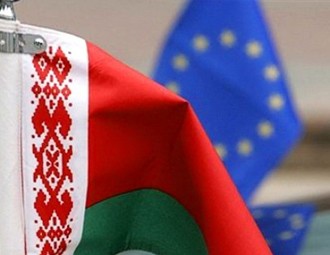Belarus’ opposition is divided into two camps depending on the attitude towards Belarus-EU relations

The first camp includes those who adhere to the value-based approach; the second – those with a pragmatic attitude.
The Belarusan opposition has split over the eastern policy revision by the EU, including changes in approaches to relations with the Belarusan officials. Some opposition organisations stand for a pragmatic approach and they are attempting to adapt their activities to the new environment and increased contacts between the EU and the Belarusan authorities. Others – supporters of the value-based approach – are attempting to influence the Belarusan-European agenda and regain lost positions of the democratic forces in the negotiations between Brussels and Minsk.
New Head of the EU Delegation to Belarus Andrea Wiktorin said that the EU would continue to raise the issue of full rehabilitation of former political prisoners.
The Belarusan opposition could be divided into two camps depending on their attitude towards the Belarusan-European relations: those who adhere to the value-based approach and those with a pragmatic attitude.
The ‘pragmatic’ camp mostly includes politicians from younger generation. They have developed regional structures and long-term development strategies for their organizations. They hope for gradual changes, including with the use of the EU’s soft power, in some spheres of the Belarusan society, which are regarded by the authorities as not critical for political stability, controllability of the state and are not threatening the existing regime.
Pragmatic politicians either positively or neutrally assess the EU efforts to support reforms in those areas of concern of the Belarusan society, where the Belarusan authorities are willing to make changes.
Supporters of the value-based approach are often emigration leaders with limited regional structures and human resources. They do not see the need for reforms within the existing political system and, consequently, put forward unrealistic demands to the authorities, such as transforming the political system.
This group of politicians stands for harsh political conditions for Belarusan-European relations, although they understand their influence on policymakers in Brussels has reduced. They are afraid of completely losing the ability to influence the agenda of the Belarusan-European relations and being excluded from the negotiations between Belarus and the European Union.
Despite the fact that some opposition politicians have requested Brussels’ assistance in establishing internal political dialogue in Belarus, they are well aware that the Belarusan authorities are unlikely to respond to this initiative. Such an appeal by some opposition leaders may be regarded as an echo of the boycott/disregard strategy during the 2015 presidential campaign. As well, they must have no illusions about the level of influence that Brussels has on Minsk and about the authorities’ readiness to change electoral practices for the 2016 Parliamentary campaign.
Nevertheless, the opposition is attempting to make use of the government’s interest in normalizing relations with the European Union and softer domestic policies against the opposition. For instance, it has stepped up unsanctioned opposition activities, sometimes quite provocative, to impel the authorities to react.
The authorities may use relatively soft means to counter opposition activity in order to reduce the influence of their harsh critics on the Belarusan-European agenda.
-
03.01
-
07.10
-
22.09
-
17.08
-
12.08
-
30.09








































